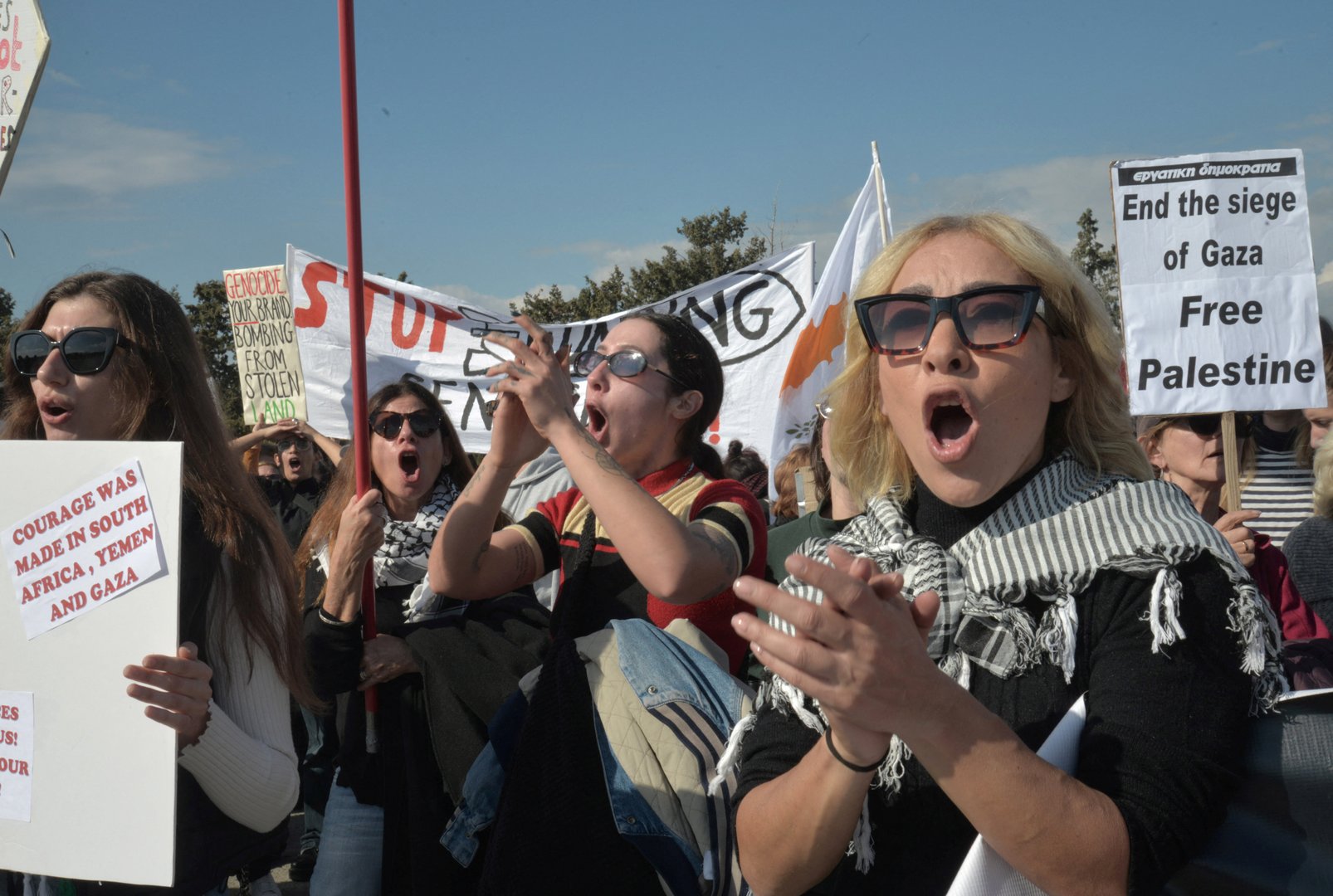There were protests outside the British Sovereign Base Area (SBA) at Akrotiri in Cyprus last Sunday about its use in military operations against the Houthi rebels in Yemen, and its alleged use in support of Israel’s war in Gaza.
The British government is acutely aware that although Britain retained sovereignty over the SBAs under the 1960 Cyprus treaties of establishment and guarantee, her presence on the island is determined not only by the treaties, but also by the UN Charter and, ultimately, the consent of the people of Cyprus.
SBA sovereignty was qualified by a binding declaration that accompanied the 1960 treaty of establishment in which Britain undertook full cooperation with the Republic of Cyprus in the administration of SBA as military bases. In particular, she undertook not to develop the bases or establish colonies or build civilian, industrial and commercial enterprises or impair the economic commercial and industrial unity and life on the island.
More to the point, retaining parts of former colonies on independence has recently come under judicial scrutiny in a non-binding advisory opinion of the International Court of Justice (ICJ) in 2019 concerned with the legal consequences of the separation of the Chagos Archipelago from Mauritius in 1965. In that case the court opined that it was in breach of the right of self-determination for colonial powers to retain parts of non self-governing territories on decolonisation, unless the retention is approved by their people.
The status of the bases in Cyprus, however, has not been questioned by the RoC, and neither has the use of force launched from the bases. Even so, the 1960 Cyprus treaties are registered with the UN and have to be read as if the obligations under the UN Charter prevail where there is a conflict with the treaties. The use of force in international relations is prohibited by the Charter, except in self-defence, or following a UN Security Council (UNSC) decision to take military action. So the use of force from the British bases is limited to self-defence or to carry out decisions of the UNSC.
The right of self-defence by states was defined by the American Secretary of State Daniel Webster in negotiations with the British envoy in the US, Lord Ashburton, in 1842 in the Caroline case. He said a state has to show “a necessity of self-defence, instant, overwhelming, leaving no choice of means and no moment for deliberation”.
What happened in that case was that in 1837 British special forces attacked the steamship Caroline on the Niagara river between US and Canada that had allegedly been transporting anti British rebels to Canada. Britain was not as enamoured of the US back then, as today’s special relationship of master and poodle suggests.
During the attack the steamship Caroline was set adrift and tumbled down the Niagara Falls and an American citizen was killed in fighting during the incident. The Americans arrested an alleged member of the British special forces and charged him with murder.
The point of law that exercised the two diplomats was whether the British were acting in lawful self-defence in their attack of the Caroline, in which case the Briton could not be guilty of murder as he would have been engaged in an act of state. States do not often agree about the finer points of state self-defence, but they accept there has to be evidence a state is under armed attack and that the use of force is necessary and proportionate.
In the case of the use of force against the Houthi rebels last week, the UK Attorney General advised that the attack on the Houthis in Yemen was in lawful self-defence that was also backed by a UNSC resolution. A resolution was passed on January 11, 2024 affirming the navigational rights of states and their right in international law to defend their vessels from attack.
The Houthis claim they are acting in defence of Gaza that has been under sustained and overwhelming attack by Israel since October 2023. No country has been assisting Gaza militarily, whereas Israel has been assisted by the US and UK; both militarily and diplomatically by their refusal to back a UNSC humanitarian ceasefire resolution.
According to the Houthi leaders, they will stop attacking shipping in the Red Sea if the West pushes for a ceasefire in Gaza. They do not pretend to be using force within the UN law of self-defence, but to terrorise shipping as a form of economic blackmail against the West to compel a ceasefire. As such it is of a piece with the oil embargo of Arab oil producing countries in 1973.
Most trading nations in the Mediterranean would support precautions to secure the shipping lanes in the Red Sea. France, Italy, Greece and others are prepared to set up an EU naval mission to protect ships from Houthi attacks as and when they occur, and Britain would be wise to join in with the EU naval mission, rather than the more aggressive military steps taken by the US.
Time was when Britain ruled the waves and had naval bases dotted all the way to India: Gibraltar at the entry of the Mediterranean, Malta half way across 1813-1964, Cyprus at the other end, Suez in Egypt 1875-1956 and Aden in present day Yemen 1839-1967.
Nowadays only Gibraltar and the SBAs in Cyprus remain under British sovereignty. Both are attached to EU territory, and longterm it makes geopolitical sense for Britain to cooperate with the EU in the protection of their common interests in the region.
.
Alper Ali Riza is a king’s counsel in the UK and a retired part time judge







Click here to change your cookie preferences